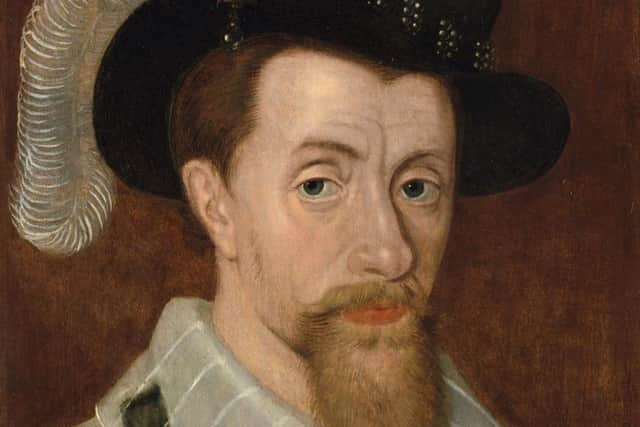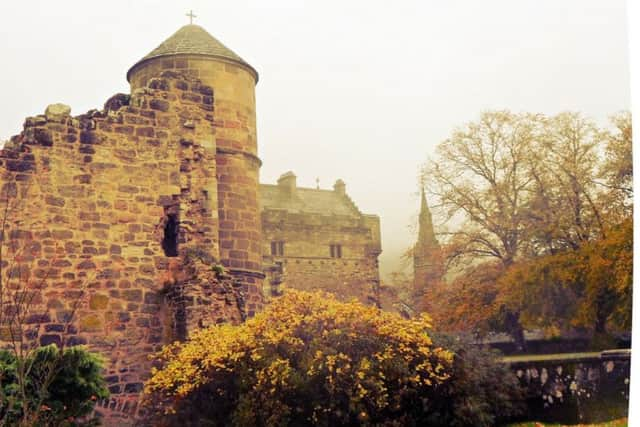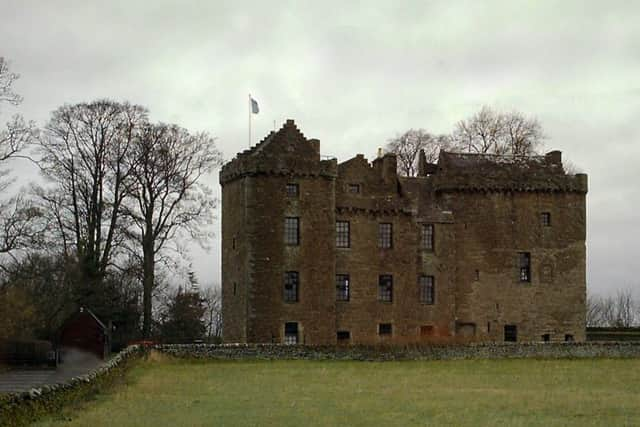The Scots surname abolished by the King
The name Ruthven was outlawed for 40 years during the 17th Century given the family’s taste for treason which ended in an alleged attempt on the King’s life in an apartment in Perth.
Following that night, the King - amid “vehement suspicion of their whole race” - launched a vengeful campaign against the Ruthvens whose name had become intertwined with stories of murder, attempted murder, abduction and dark manoeuvres at the very top of Scottish society.


Advertisement
Hide AdThe Ruthven name was banned for four decades by an Act of Parliament and their lands seized by the Crown in a bid to erase the family’s power, reputation and influence.
There is no doubt the Ruthven family, who hailed from the lands of Angus, had form.
Lord Patrick Ruthven, grandfather to John and Alexander, was one of the assassins of David Rizzio, the personal secretary to Mary Queen of Scots, who died form multiple stab wounds at the Palace of Holyrood House in March 1566.


Further more, their father William, the 1st Earl of Gowrie was hanged after leading the Ruthven Raid which which led to the abduction of 16-year-old James VI, who was held in Ruthven Castle outside Perth for a year in a bid to limit pro-Catholic policy on Scottish life.
But it was the attempted murder of the King in Perth 18 years later which was to bring down the Ruthven name with the incident the “outstanding event” of 1600, according to historian PH Brown.
The two brothers John Ruthven, 3rd Earl of Gowrie, who served as Provost of the town, and his brother Alexander, supposedly lured the King to the town to murder him but were killed instead in circumstances that remain far from clear.
Advertisement
Hide AdThe so-called Gowrie Conspiracy both horrified and amused at the time, not least given the King’s ardent attempt to push his version of events and his threat of penalties of treason should his story not be believed.


The King claimed John and Alexander lured the King from a hunt at Falkland Palace with a cover story that a suspicious man had been held in Perth after being found with a pot of gold under his cloak.
Advertisement
Hide AdAfter escorting the King to the town, dinner was served to the King before James VI was supposedly taken to meet the prisoner, who was held in a locked apartment room nearby.
Brown wrote: “Here James found himself face-to-face with a man not in bonds as he had expected, but one with his limbs free and a dagger at his girdle.
“Seizing the man’s dagger, Ruthven held up to the King’s breast, threatening that if he uttered a cry or offered to open the window he would stab him to the heart, and adding that James now had occasion to remember the murder of his captor’s father.”
In his testimony, James VI claimed Ruthven’s demeanour changed after mention of his father’s death and offered the King the chance to go quietly. The King tried to leave but was charged at by the decoy in the room.
Ruthven then decided the King must die, according to the monarch’s broadly unchallenged account.
Brown added: “On his attempting to bind the King’s hands a struggle ensues, in which James dragged his antagonist to the window which had been opened by the man and from which he now shouted for help.”
Advertisement
Hide AdThe King’s followers ran to assist with Sir John Ramsay then slaying Alexander and killing the Earl in the small apartment.
Such was the King’s determination to have his version of events believed, the ministers of Edinburgh were ordered to deliver their support for the monarch’s account from the pulpit.
Advertisement
Hide AdOne minister, Robert Bruce, the second most influential figure in the Kirk, was hounded by the King after he refused to back the story.
The minister was “pursued...with a petty and persistent malice which revealed the most contemptible traits in his (James VI’s) character,” Brown said.
By December, an Act of Parliament was passed that delivered the full force of the King’s vengeance. The name of Ruthven was abolished, the family arms were cancelled and their lands confiscated to the state.
The Act said the surname had been “naturally bent these many years bygone to attempt most high and horrible treasons against his majesty.”
Abolishing the name was to “extinguish the memory of the treasonable committers of the crimes foresaid”.
The act added: “With advice and consent of the estates of this present parliament, statutes and ordains that the surname of Ruthven shall now and in all time coming be extinguished and abolished for ever....”
Advertisement
Hide AdRuthvens were ordered to renounce their surname and take an “honest and undisgraced” alternative to use in contracts, bonds, pacts, proclamations of banns, letters and speeches.
In addition, the barony of Ruthven was changed to the barony of Huntingtower.
Advertisement
Hide AdRuthven Castle, just north of Perth, was renamed Huntingtower Castle with the name remaining to this day.
It wasn’t until 1641 that the law was relaxed with the Ruthvens of Balindean allowed to assume their name once again.
Parliamentary papers detail how the branch of Ruthvens had “restored and rehabilitated” themselves.
“It shall be permissable to them, their bairns and posterity to enjoy and assume to themselves the said surname of Ruthven and to use the said name in the same manner as if the act of parliament made in the parliament held at Edinburgh in November 1600 regarding the abolishing of the surname of Ruthven had never been made against them.”
Brown said James VI - a leader often “false, cruel and vindictive” character - acted to quell a hereditary feud between the Ruthvens and the Crowns by outlawing the name.
But he also pointed to broader possible drivers of the King’s attempts to erase a family from history.
Brown highlighted how the King was in debt to the Gowrie’s by £80,000 - “a sum which in the state of his Exchequer must grow more onerous with every year of his reign.”
